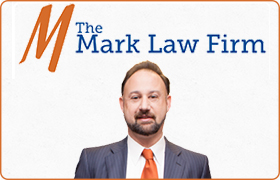 Union County, NJ RICO Act Lawyers
Union County, NJ RICO Act Lawyers
Sponsored Law Firm
-
 x
x

Click For More Info:
-
Mark Law Firm
675 Morris Avenue, Suite 102 Springfield, New Jersey 07081 » view mapCar Accident Call Now For A Free Initial Consultation
Life changes drastically in the aftermath of a serious accident or injury. Emotional and financial ramifications can also be extensive.
800-736-9780  Jamison Mark Basking Ridge, NJ
Jamison Mark Basking Ridge, NJAttorney At Law - NJ, 2000
Widener University SOL, J.D. - 1999
 Overview
OverviewMark Law Firm is a full-service firm representing the interests of its clients.
 Testimonials
Testimonials"He is certainly one to go to the limit for his clients and his friends."
Not enough matches for Union RICO Act lawyer.
Below are all Union Criminal lawyers.
Sponsored Lawyers
1-10 of 24 matches
Criminal, Accident & Injury, Immigration, Business
At the Law Office of Charles Dawkins, Jr, we focus on Criminal Defense, Personal Injury, Immigration, and Federal & State Appeals and we are here to listen to you and help you navigate the legal system.
(more)Contract, Estate Planning, Employment, DUI-DWI, Litigation
With a legal mind honed at New York Law School and a global perspective cultivated at the London School of Economics, I bring over 15 years of experience to every challenge. I thrive in fast-paced environments and deliver clear, strategic solutions. I am deeply compassionate about my clients' legal standing, constitutional rights, and individual interests. I spare nothing in my drive and effort to protect them and advocate for their needs. Whether it's reviewing a contract, managing a transaction, planning for the future or advocating for their civil and constitutional rights, I take pride in using my expertise to fiercely champion their cause. I look forward to the opportunity to serve you as your attorney and advocate.
(more)Accident & Injury, Personal Injury, Criminal
Howard Lesnik is certified as a trial attorney by the New Jersey Supreme Court. The New Jersey Supreme Court has certified Howard Lesnik as a board certified trial attorney. Only 2% of the 75,000 registered NJ lawyers meet the stringent standards of experience, education, and knowledge, to be recognized and achieve board certification by the Supreme Court of New Jersey. Have questions? Need answers about an injury that occurred in New Jersey as a result of someone else’s negligence, or need to consult a criminal defense attorney in Mountainside NJ? Call Howard Lesnik at 908.264.7701 or email Mr. Lesnik at howard@lesniklaw.com. Mr. Lesnik is a Certified Trial Lawyer in New Jersey who brings his experience and knowledge of the laws of New Jersey to protect you and your family. Allow yourself time to heal from your injuries while your attorney handles the insurance company, and other legal matters concerning any exposure to criminal charges.
(more)








